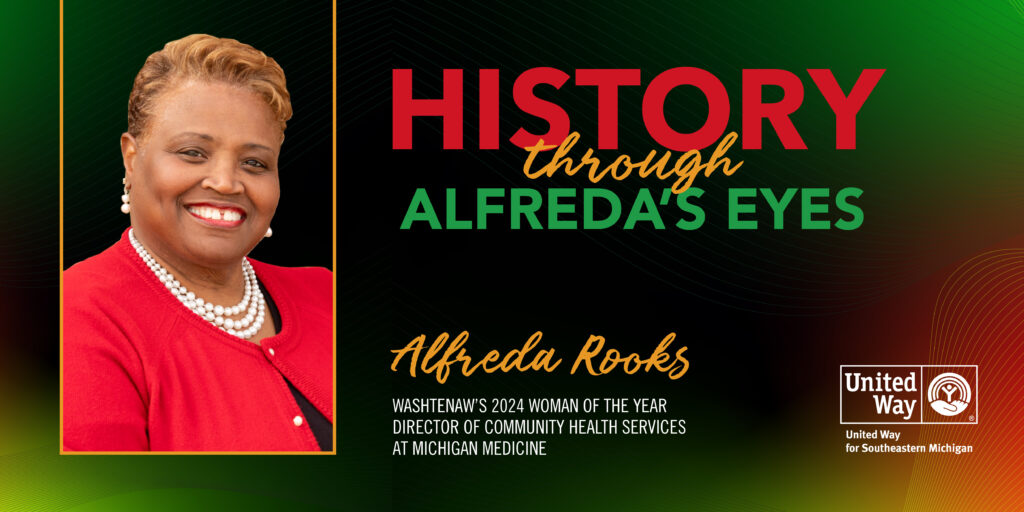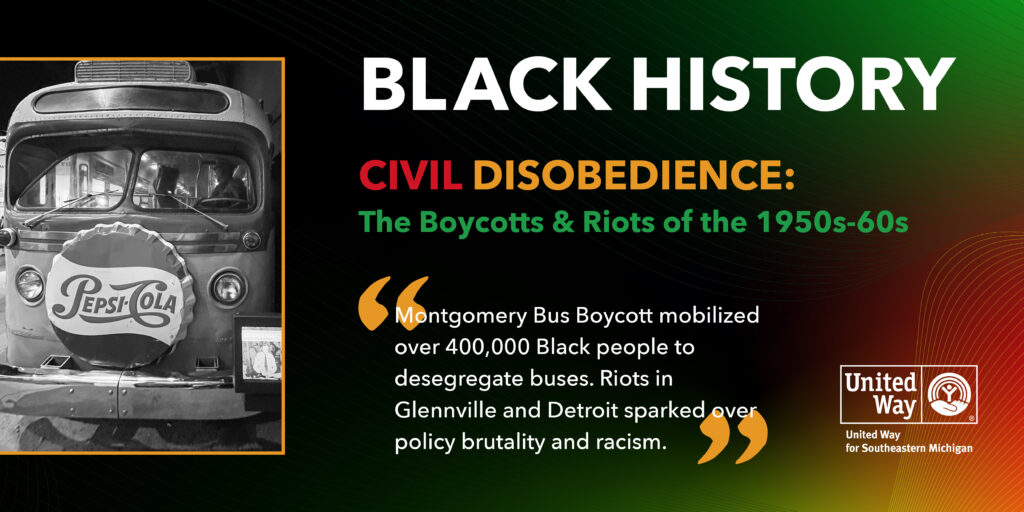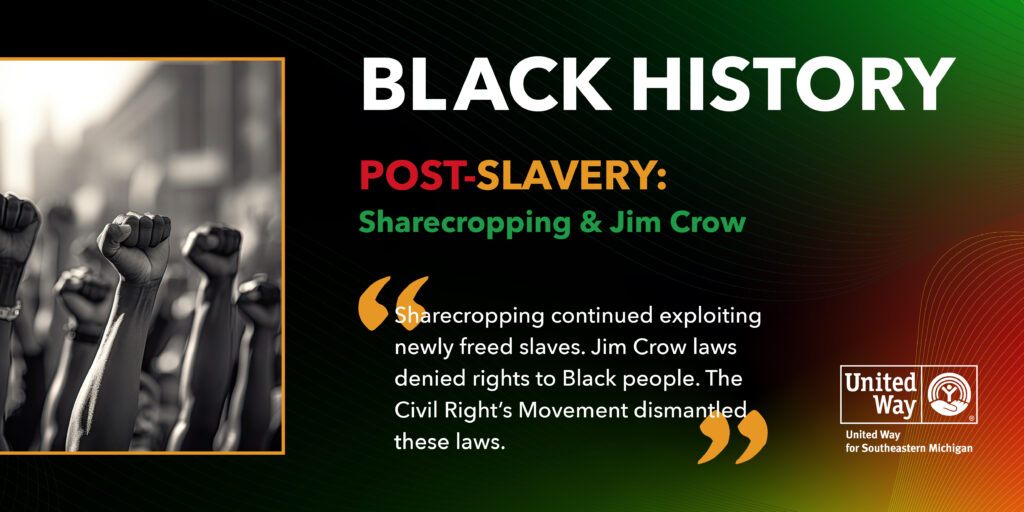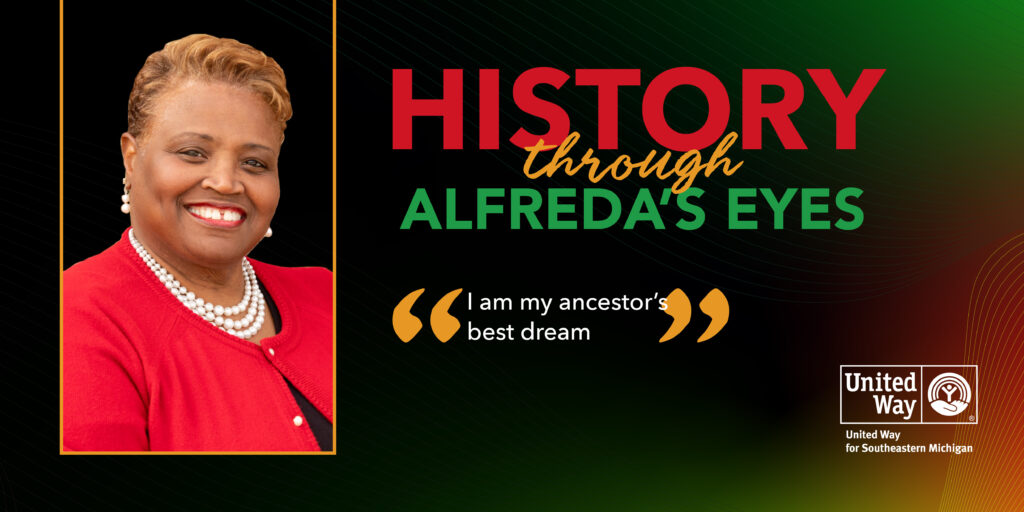History Through Alfreda’s Eyes
Published on February 21, 2024 in Diversity, Equity and Inclusion
Heritage months provide space to honor our personal histories and celebrate the important contributions of others who have shaped our communities. This Black History Month, United Way for Southeastern Michigan shares reflections from our 2024 Washtenaw County Woman of the Year, Alfreda Rooks.
Alfreda will be celebrated at the Power of the Purse event on March 20, 2024, for her efforts to improve equity in healthcare as the director of community health services at Michigan Medicine. Below, Alfreda shares vivid childhood memories, notes on her family history and the importance of honoring her ancestors.

REMEMBERING HOW IT WAS
Originally, I’m from Birmingham Alabama. I was two when we moved to Cleveland, Ohio. While I was a teenager, I went back and forth every summer to stay with my paternal grandparents and other family members. Both sides of my family lived in Alabama. I was the only one of my paternal grandparents’ grandchildren that didn’t live down there.
When I went to visit them, I can remember having to go to the back of the bus. Our neighbor took us on the bus to go downtown and I actually sat in a front seat— our neighbor said, “No, no, no, we have to sit back here.” At the time, I didn’t understand why. Riding the bus in Detroit, we sat wherever we wanted to sit. It wasn’t until I got older that I processed it. And thinking about those things now, they’re really telling of a big cultural change.

CIVIL UNREST IN THE LATE 1960s
We moved from Cleveland, OH to Los Angeles, then returned to Cleveland. In 1968, we moved from Cleveland, OH permanently to Detroit, MI.
My last day of school in Cleveland, I remember seeing all this commotion down the street from the school. There were a lot of police cars and people gathering. I could barely see it, but I could tell there was something going on. I know now that it was the start of the Glennville Riots, five full days of civil unrest. I saw the riots beginning right as we were leaving the city.
By the time we made it to Detroit, they had already finished their riots in 1967. It was an important time for civil rights. I lived in Detroit until 7th grade when we moved to Romulus, I grew up there. When we lived in Detroit, we were the second Black family in the neighborhood.
One vivid memory I have is at the Sanders Ice Cream Parlor on Grand River. My mother and I sat at the counter waiting to be served. I remember seeing the people that worked there just staring at us. My mother refused to leave until they served us. To this day, I don’t like cherry pie and ice cream. It wasn’t until recently that I asked my mother about my memory and she confirmed that she wasn’t leaving until we were served.

I AM MY ANCESTOR’S BEST DREAM
In my family, I’m only a fourth-generation freed slave. My great grandfather started as a sharecropper but later bought a 100-acre farm in Shelby County, AL and that’s where my family grew up. My family members lived through the Great Depression, Jim Crow, and Civil Rights Movement.
In my work, I remember where my family originated and what they endured. My ancestors taught me about resilience, hope and hard work. I am living their legacy. The phrase is often used I am my ancestors’ best dream. They are all behind me, they are all within me. They are why I am the woman I am today.
